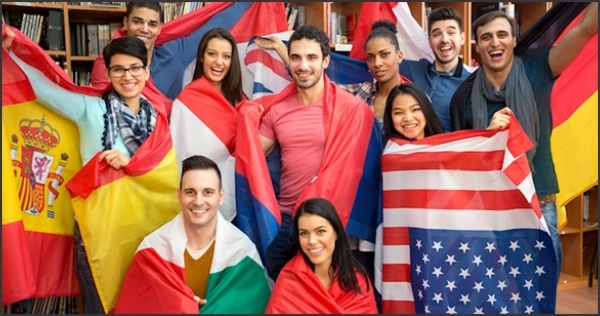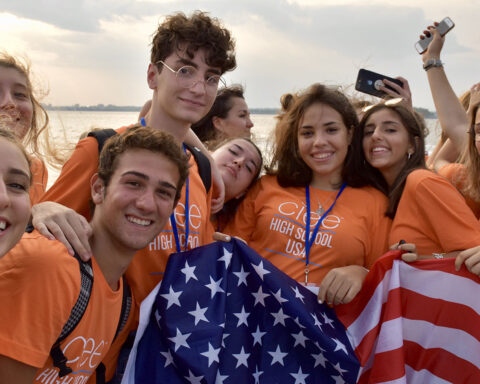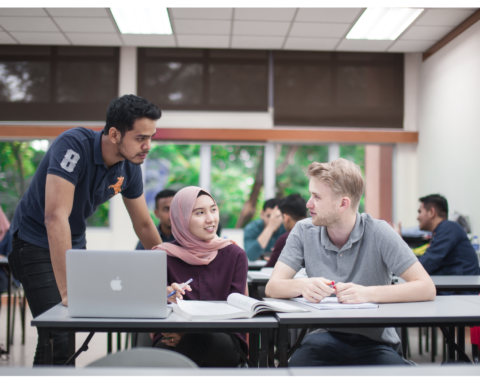The Fully funded Fulbright-Hays Program is one of several United States Cultural Exchange Programs with the goal of improving intercultural relations, cultural diplomacy, and intercultural competence between the people of the United States and other countries through the exchange of persons, knowledge, and skills. Via the program, competitively-selected American citizens including students, scholars, teachers, professionals, scientists, and artists may receive scholarships or grants to study, conduct research, teach, or exercise their talents abroad; and citizens of other countries may qualify to do the same in the United States.
Program Background and Overview
The program was founded by United States Senator J. William Fulbright in 1946 and is considered to be one of the most widely recognized and prestigious scholarships in the world. The program provides approximately 8,000 grants annually, comprising roughly 1,600 to U.S. students, 1,200 to U.S. scholars, 4,000 to foreign students, 900 to foreign visiting scholars, and several hundred to teachers and professionals.
The Fulbright Program is administered by cooperating organizations such as the Institute of International Education and operates in over 160 countries around the world. The Bureau of Educational and Cultural Affairs of the U.S. Department of State sponsors the Fulbright Program and receives funding from the United States Congress via annual appropriation bills. Additional direct and in-kind support comes from partner governments, foundations, corporations, and host institutions both in and outside the U.S. In 49 countries, a bi-national Fulbright Commission administers and oversees the Fulbright Program. In countries that have an active program but no Fulbright Commission, the Public Affairs Section of the U.S. Embassy oversees the Fulbright Program. More than 370,000 people have participated in the program since it began; 62 Fulbright alumni have won Nobel Prizes; 88 have won Pulitzer Prizes.
Fulbright-Hays Program’s Initiatives
As part of the Fulbright Visiting Scholar Program, the Fulbright-NATO Security Studies Award aims to foster awareness and understanding of NATO and to increase the level of debate on peace, security, and defense related issues. This award funds post-doctoral researchers, professors and professionals to conduct research and/or lecture at a U.S. institution for a period of three months in fields of study with a connection to NATO, including but not limited to cybersecurity, military history, nuclear disarmament and non-proliferation, peace and security, security studies, and transatlantic studies. Applicants must present a letter of affiliation from an accredited university or non-profit research institution and must demonstrate in their Project Statement that their proposed research/course is relevant to NATO.
Benefits and Eligibility
Location: United States
Benefits of the Fulbright-NATO Security Studies Award:
- Scholarship of 9,000 euros for 3 months.
- J-1 visa sponsorship.
- Pre-departure support.
- Travel stipend of 2,000 euros.
- Health benefit plan.
- In-country programming.
- Prestigious title and access to alumni network.
Eligibilities:
- Citizenship in a NATO member country (excluding the U.S.).
- Proficiency in English.
- Minimum of a doctoral degree (PhD) or other terminal degree.
- Academic excellence or outstanding personal or professional background.
Eligible Regions: NATO member countries (excluding the US).
Application Process and Deadline
Application Deadline: December 1, 2023 (41 Days Remaining)
Required documents for application include:
- Americanized CV.
- 3-5 page single-spaced Project Statement (please ensure to demonstrate relevancy to NATO).
- 1-3 page Bibliography of References relevant to the proposed research.
- Diploma of most recent degree including transcripts with completed coursework (certified translation in English unless the original documents are in Dutch, French, or German).
- Three letters of recommendation (uploaded directly into the online application by chosen recommenders).
- Letter of affiliation from a U.S. host institution.
Conclusion
The Fulbright-Hays Program offers a remarkable opportunity for international exchange and academic pursuits in the USA. By fostering cultural diplomacy and facilitating the exchange of knowledge and skills, this program contributes to the growth of intercultural competence and understanding worldwide. With a rich history and a focus on various fields of study, it continues to be a symbol of academic excellence and global cooperation.
The Fulbright-Hays Program aims to enhance intercultural relations and competence through the exchange of individuals, knowledge, and skills between the United States and other countries.
Yes, international students, scholars, and professionals can apply for the Fulbright-Hays Program to study, teach, research, or exercise their talents in the United States.
The program supports a wide range of fields, including but not limited to arts, sciences, social sciences, humanities, and more. The choice of study or research area largely depends on the applicant’s interests and qualifications.
Research areas related to NATO, such as cybersecurity, military history, nuclear disarmament, peace and security, and transatlantic studies, are eligible for this award. Applicants should demonstrate the relevance of their research to NATO.
No, once your application is submitted, you cannot make changes. It’s recommended to complete and review your application thoroughly before submission.





